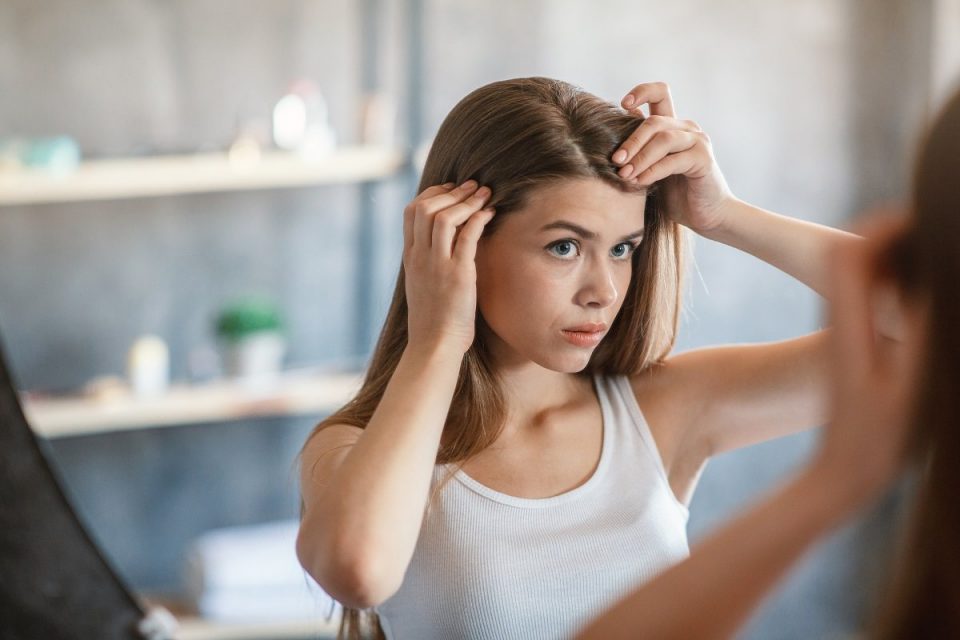How Hair Loss Affects Self-Esteem?
Share0
How Hair Loss Affects Self-Esteem?
Self-esteem is how we think about ourselves and other people. It can be high with pride or low with shame. Having thinning hair or balding may be devastating to one’s self-esteem, mainly when health, attractiveness, and youth embody one’s view on strength. Hair loss can severely affect self-esteem.
You may not know how significant your hair is until it falls out. Hair is a vital aspect of a person’s identity. Hair loss due to disease, medicine, nature, or a medical condition may affect one’s self-esteem and confidence.
In this article on how hair loss affects self-esteem, we’ve gone through each option in greater detail below to help you maintain confidence when you have excessive hair loss.
Table of Contents
How a Low Self-Esteem Affects Others?
We already know that hair loss may harm one’s self-esteem. But what does it entail in the real world for those who live it? A lack of confidence in one’s abilities can take many forms. Hair loss may harm a person’s self-esteem.
- Refuse to attend social events for fear of being evaluated on the appearance of their hair
- Thoughts of inferiority are common, such as feeling that other individuals are superior or more attractive.
- Concerned with their hair and how it makes them feel.
- Distracting themselves from everyday life by obsessing about their hair.
- Fear, self-doubt, and concern accompany a lack of control over the future and the manifestation of these feelings.
- Face a lack of trust in yourself in general.
- Low self-esteem may lead to several mental health conditions, such as anxiety or depression.
Tips on Keeping Your Confidence With Hair Loss
While hair loss might affect your confidence, it doesn’t have to have a long-term impact on how you think, feel, and act.
Hair loss isn’t permanent. With the proper procedure, it’s usually possible to stop further hair loss and even restore lost hair. No matter how fast or how much hair you lose, you control how you react to that loss.
Be Realistic
Hair loss isn’t dangerous, and it doesn’t endanger your life or impair your health. Being realistic is one of the best ways to deal with hair loss. Assume it’s a fact of life; instead of focusing on the negative aspects, focus on using it to your advantage.
There is no danger in remembering that hair loss is neither a fatal illness nor an actual impairment. Integrate it into your life. Adapting to a balding head of hair may be a challenging psychological task, but only if you let it be.
Find Your Style
It’s a common misconception that having a bald spot or thinning hair on top means you can’t have a trendy haircut.
Pick a style that suits your hair. To cover a bald spot, try growing out the front of your hair and brushing it backward. If you have a bald spot on one side, try parting your hair.
Finding a style that complements your hair is the aim. Your hair can be a strength, not a weakness if you choose the proper style and wear it with confidence.
Care For Your Hair With Caution
If you’re balding due to malnutrition or cancer treatment, you should be cautious about your style and care for your hair. Avoid using hairdryers and soft hair products to wash or style your hair to avoid strain on your hair follicles.
A satin pillowcase or a hairnet might help decrease the stress on your hair roots if you lose hair at night. These methods won’t stop hair loss, but they will save you from accidentally plucking off weak hairs.
Consider a Hair Transplant.
If you have significant hair loss and desire quick results, you may want to consider hair replacement surgery.
The back and sides of the head are removed to restore the hairline or crown. A skilled hair transplant surgeon can achieve natural results.
Try Therapy for Depression or Anxiety
Ask for assistance if your hair loss significantly affects your mood, feelings, or behavior.
Hair loss sufferers may experience more significant than usual levels of worry and sadness. Considering the effect hair loss may have on one’s self-perception, it’s natural.
Talking to a therapist or other mental health expert may help you understand your hair loss, cope with unpleasant emotions, and plan your future actions.
Use FDA-Approved Drugs
Baldness and telogen effluvium are both treatable. Early intervention may halt hair loss and even regrow hair in thinning areas like the hairline or crown.
Such as finasteride is the most effective drug to prevent hair loss if you have a receding hairline, thinning hair, or other early indicators of male pattern baldness.
It prevents testosterone from being converted to DHT, the hormone that damages hair follicles and stops hair growth; it works. Daily use of finasteride effectively prevents and treats baldness.
And the other one is minoxidil. If finasteride is the most effective hair loss medicine, minoxidil is its best friend.
Topical minoxidil treats hair loss. Hair follicles are moved into the anagen phase of their development cycle instead of being inhibited by DHT production.
Conclusion
While your hair loss is inevitable, how you respond to it is totally in your hands. This article on how hair affects self-esteem will help you deal with it and accept your hair loss as a fact of life and let it affect your self-esteem, quality of life, and capacity to feel happy and content.
Alternatively, you may choose to accept hair loss as a fact of life and begin taking action if required. Regardless of your hair loss, every day is an opportunity to cultivate self-confidence.
